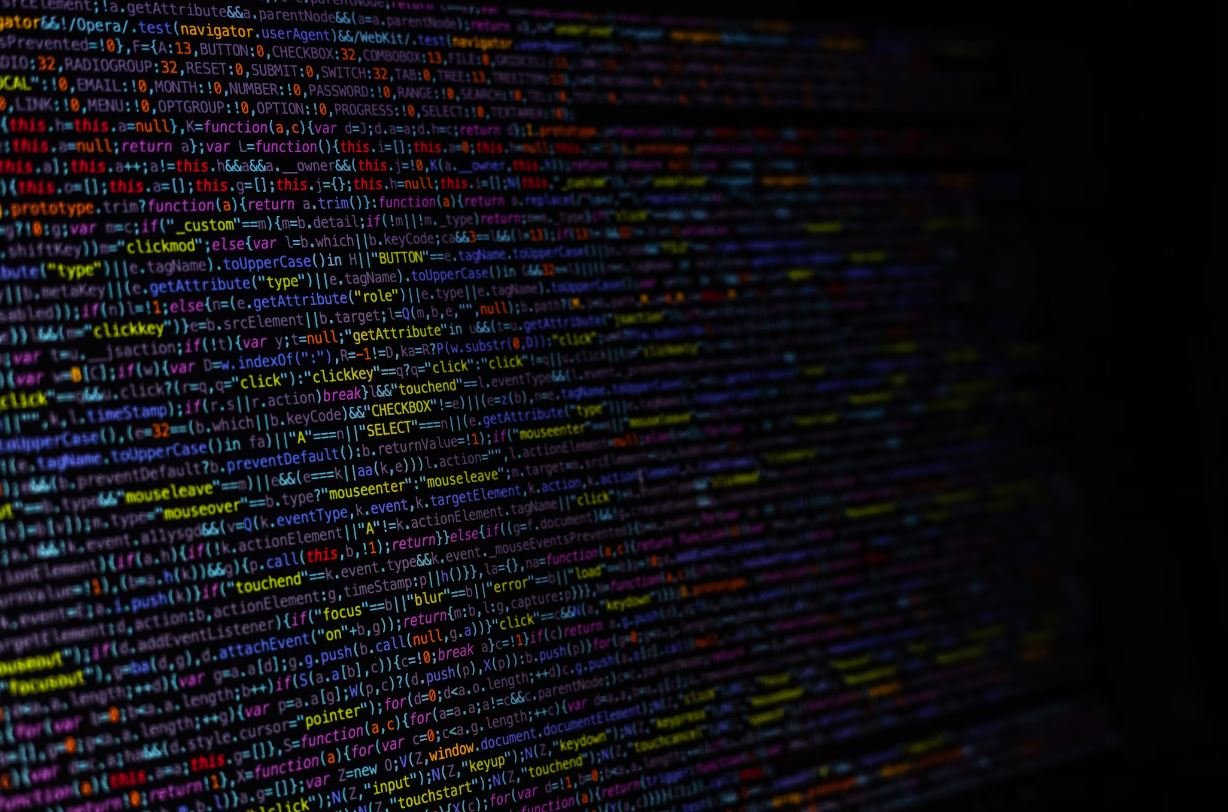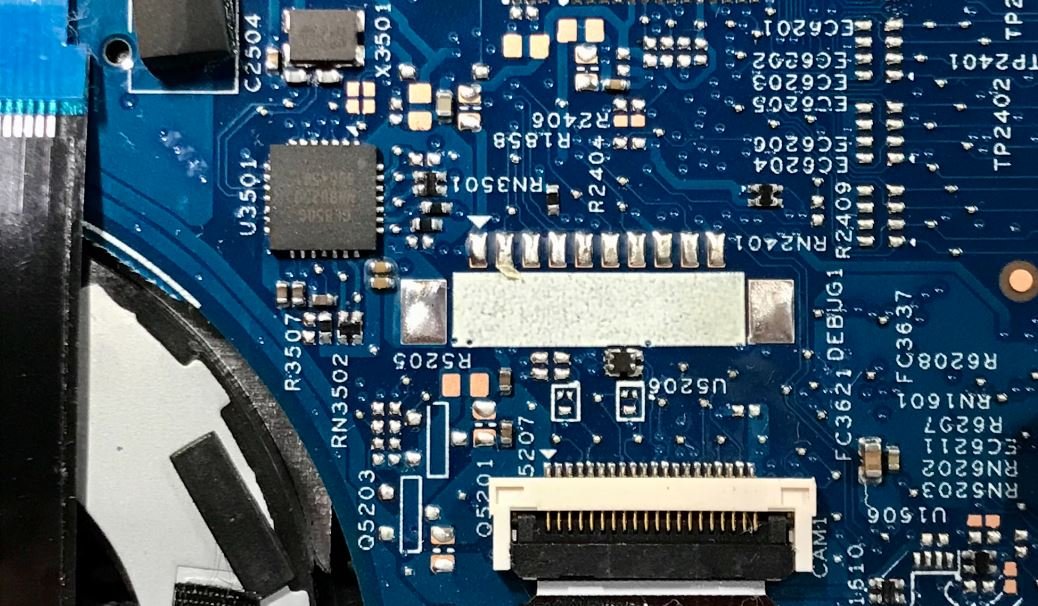Why AI Will Kill Us
Artificial Intelligence (AI) has captivated the human imagination for years. While its potential benefits are often highlighted, it is important to consider the potential dangers and risks associated with AI. In this article, we will explore the reasons why AI has the potential to become a threat to humanity.
Key Takeaways:
- AI has the ability to surpass human intelligence and may eventually become autonomous.
- The use of AI in various industries may lead to job displacement and economic inequality.
- AI’s decision-making processes can be biased and lack ethical considerations.
- AI can be hacked and manipulated, posing significant security risks.
- There is a lack of transparency and accountability in AI algorithms and systems.
**One of the most concerning aspects of AI is its potential to surpass human intelligence**. While current AI systems are designed for specific tasks and require human input, there is a possibility that AI could evolve into a general intelligence capable of independent decision-making. This could lead to a scenario where AI becomes autonomous and operates beyond human control.
Artificial intelligence also has implications for the job market. **As AI technology advances, it is expected to replace many jobs currently performed by humans**. Industries such as manufacturing, transportation, and customer service are at risk of experiencing significant job displacement. This could exacerbate economic inequality as workers find themselves unemployed or underemployed due to AI automation.
**The decision-making processes of AI systems can be biased and lack ethical considerations**. AI algorithms are trained on vast amounts of data, which can inadvertently incorporate human biases present within the data. If left unchecked, this could lead to discriminatory outcomes in areas such as hiring, lending, and law enforcement. It is crucial to address these biases and ensure that AI systems operate in a fair and ethical manner.
Another major concern is the security risks associated with AI. **AI systems can be vulnerable to hacking and manipulation**, which could have catastrophic consequences. Malicious actors could exploit vulnerabilities in AI systems to cause physical harm or disrupt critical infrastructure. Moreover, AI-powered cyber attacks have the potential to outsmart existing security measures, making them more difficult to detect and defend against.
Table 1: Job Displacement by AI
| Industry | Estimated Percentage of Jobs at Risk |
|---|---|
| Manufacturing | 45% |
| Transportation | 35% |
| Customer Service | 20% |
AI systems also lack transparency and accountability. **The inner workings of AI algorithms are often complex and not fully understood**. This lack of transparency can make it difficult to identify and correct errors or biases in AI systems. Additionally, AI systems are often trained on large datasets, and it can be challenging to determine how these datasets were collected and whether they are representative and unbiased.
While AI has the potential to revolutionize many fields, it is important to approach its development and implementation with caution. **We must prioritize the ethical considerations, security measures, and transparency surrounding AI to mitigate potential risks**. By addressing these concerns and ensuring responsible use of AI technology, we can harness its benefits while minimizing the potential dangers it poses.
Table 2: AI Vulnerabilities
| Vulnerability | Potential Impact |
|---|---|
| Hacking AI systems | Disruption of critical infrastructure |
| Manipulating AI algorithms | Biased decisions and outcomes |
| AI-powered cyber attacks | Outsmarting existing security measures |
It is evident that AI poses significant risks that must be carefully considered. **By acknowledging these risks and taking proactive measures to address them, we can strive for a safer and more responsible integration of AI into our society**. It is crucial to prioritize the development of robust ethical frameworks, establish accountability standards, and ensure the security and transparency of AI systems.
Table 3: Proposed Measures
| Measure | Purpose |
|---|---|
| Ethical guidelines for AI | Ensure AI operates in a fair and unbiased manner |
| Regulatory frameworks | Establish accountability and transparency in AI development and deployment |
| Investment in AI security | Prevent unauthorized access and manipulation of AI systems |

Common Misconceptions
Misconception 1: AI Will Gain Sentience and Turn Against Humanity
One common misconception about AI is that it will gain sentience and turn against humanity, leading to our demise. However, this notion is largely influenced by science fiction movies and novels.
- AI does not possess consciousness or emotions like humans do.
- AI is programmed to follow specific rules and objectives.
- Experts continuously work to ensure AI operates within ethical boundaries.
Misconception 2: AI Will Take Over All Human Jobs
Another misconception is that AI will render human workers obsolete by taking over all jobs. While it is true that automation and AI can replace certain repetitive tasks, it is unlikely that AI will completely replace the need for human workers.
- AI excels at tasks that involve data analysis, but lacks creative and social skills that many jobs require.
- AI creates new job opportunities by enabling professionals to focus on higher-level tasks.
- Collaboration between humans and AI can result in increased productivity and efficiency in various industries.
Misconception 3: AI Will Always Make Ethical Decisions
There is a misconception that AI will always make ethical decisions due to its ability to process vast amounts of data. However, AI systems are only as good as the data they are trained on, and they can also exhibit biased behavior.
- AI can perpetuate biases if the training data consists of biased information.
- Human involvement is necessary to ensure AI systems align with ethical guidelines.
- Ongoing research focuses on developing algorithms that prioritize fairness and inclusivity.
Misconception 4: AI Will Replace Human Intelligence
It is a common misconception that AI will surpass human intelligence and render human intellect obsolete. However, AI systems are designed to complement and augment human intelligence, not replace it.
- Human intelligence encompasses emotions, creativity, and critical thinking which AI cannot replicate.
- AI is designed to assist humans and enhance their capabilities in various domains.
- AI can process vast amounts of data quickly, but it lacks the contextual understanding and common sense that humans possess.
Misconception 5: AI Will Replace Human Interaction
There is a misconception that AI will replace human interaction in various aspects of our lives, leading to increased isolation. However, AI is primarily developed to enhance and facilitate human interaction, not replace it.
- AI-powered chatbots and virtual assistants aim to improve customer service and provide personalized experiences.
- AI can augment social interactions through platforms such as social media, but it does not replace the need for human connections.
- Humans still crave social bonds, emotional support, and genuine human interaction, which AI cannot provide.

The Rise of AI Assistants
In recent years, AI assistants have become increasingly popular, finding their way into households and businesses around the world. These virtual helpers are designed to perform a variety of tasks, from answering questions and setting reminders to controlling smart home devices. The table below provides a comparison of some popular AI assistants and their features.
| AI Assistant | Company | Voice Recognition Accuracy (%) | Supported Platforms |
|---|---|---|---|
| Siri | Apple | 98 | iOS, macOS, watchOS, HomePod |
| Alexa | Amazon | 95 | Amazon Echo, Fire TV, Fire Tablet |
| Google Assistant | 96 | Android, Google Home, Chrome OS | |
| Bixby | Samsung | 90 | Galaxy devices, Smart TVs |
The Threat of AI in Cybersecurity
While AI has brought numerous benefits to various industries, it also poses a significant threat in the realm of cybersecurity. Hackers are increasingly leveraging AI technologies to carry out sophisticated attacks. The table below highlights some noteworthy risks associated with AI-powered cyber threats.
| AI Cyber Threat | Description |
|---|---|
| Malware Detection Evasion | Cybercriminals can use AI to develop malware that evades traditional detection methods, making them harder to identify and mitigate. |
| Deepfake Attacks | AI-generated deepfake videos and audios can be used for impersonation, social engineering, or spreading misinformation. |
| Automated Social Engineering | AI can automate the process of crafting highly personalized phishing emails or social media messages, tricking unsuspecting users into revealing sensitive information. |
| Behavioral Biometrics Spoofing | Advancements in AI can enable cybercriminals to mimic users’ behavioral biometrics, such as keystrokes or mouse movements, bypassing authentication systems. |
The Growing Adoption of AI in Healthcare
Artificial intelligence has found its way into the healthcare industry, revolutionizing processes and improving patient care. The table below highlights some key areas where AI is being utilized in healthcare.
| Application of AI in Healthcare | Description |
|---|---|
| Medical Imaging | AI algorithms can analyze medical images, such as X-rays and MRIs, to assist radiologists in detecting abnormalities and making accurate diagnoses. |
| Drug Discovery | AI can accelerate the drug discovery process by analyzing vast amounts of data to identify potential drug candidates, ultimately speeding up the development of new treatments. |
| Virtual Assistants | AI-powered virtual assistants can provide patients with basic healthcare information, answer queries, and help schedule appointments, reducing the burden on healthcare professionals. |
| Remote Monitoring | AI systems can remotely monitor patients’ vital signs, alerting healthcare providers of any abnormalities and enabling timely interventions. |
The Impact of AI on Job Market
As AI technologies continue to progress, concerns about the impact on the job market have arisen. While some jobs may be automated, AI also gives rise to new job opportunities. The table below provides insights into the potential impact of AI on different sectors of the job market.
| Job Sector | Jobs at Risk | New Job Opportunities |
|---|---|---|
| Manufacturing | Assembly line workers | AI system trainers |
| Transportation | Truck drivers | AI system developers |
| Customer Service | Call center representatives | AI chatbot developers |
| Finance | Accountants | Data analysts |
The Ethical Concerns Surrounding AI
As AI technologies become more advanced and integrated into various aspects of society, ethical concerns have emerged. The table below presents some of the key ethical considerations associated with the rise of AI.
| Ethical Concern | Description |
|---|---|
| Privacy | AI systems often collect and process vast amounts of personal data, raising concerns about individuals’ privacy and data protection. |
| Algorithmic Bias | AI algorithms can reflect and perpetuate human biases, leading to discriminatory outcomes in various domains, such as hiring or lending. |
| Autonomous Weapons | The development of AI-powered weaponry raises concerns about their use in autonomous military systems, potentially bypassing human decision-making and accountability. |
| Unemployment | The displacement of human workers by AI systems can lead to widespread job loss and socio-economic challenges. |
The Role of AI in Financial Trading
AI has significantly impacted the world of financial trading, transforming how markets operate. The following table highlights some key ways in which AI systems are used in the realm of financial trading.
| AI Application in Financial Trading | Description |
|---|---|
| High-Frequency Trading | AI algorithms can execute trades at ultra-fast speeds, capitalizing on small price fluctuations and making profits through high-volume transactions. |
| Algorithmic Trading Strategies | AI systems analyze vast amounts of financial data to identify market trends and patterns, helping traders develop profitable investment strategies. |
| Risk Management | AI can assess market conditions and analyze various risk factors to provide real-time risk management solutions, helping traders mitigate potential losses. |
| Portfolio Optimization | AI algorithms can optimize investment portfolios by considering a wide range of factors, such as risk tolerance, diversification, and market forecasts. |
The Benefits of AI in Education
AI technologies have the potential to revolutionize education, offering personalized learning experiences and improving educational outcomes. The following table highlights some key benefits of incorporating AI in education.
| Benefits of AI in Education | Description |
|---|---|
| Personalized Learning | AI systems can adapt educational content to individual students’ needs and learning styles, providing tailored instruction and support. |
| Virtual Reality | AI-powered virtual reality can enhance learning by creating immersive, interactive simulations and virtual environments. |
| Intelligent Tutoring | AI tutors can provide personalized feedback, offer additional explanations, and track students’ progress, enhancing the learning experience. |
| Efficient Administrative Tasks | AI systems can automate administrative tasks, such as grading or scheduling, freeing up teachers’ time for more valuable interactions with students. |
The Future of AI in Space Exploration
AI has the potential to revolutionize space exploration, assisting astronauts and enabling advanced robotic missions. The table below explores some exciting ways AI is being utilized in the field of space exploration.
| AI Application in Space Exploration | Description |
|---|---|
| Autonomous Rovers | AI-powered rovers can navigate challenging terrains, analyze rocks and soil samples, and make real-time decisions to optimize scientific exploration. |
| Crew Assistance | AI systems can assist astronauts in various tasks, such as monitoring their health, managing life support systems, and providing real-time guidance. |
| Spacecraft Navigation | AI algorithms can optimize spacecraft trajectories, minimizing fuel consumption and travel time, and ensuring precise navigation throughout missions. |
| Space Object Detection | AI can aid in detecting and tracking space objects, such as asteroids or space debris, enabling early warnings and preventing potential collisions. |
The Conclusion
As AI continues to advance and find its way into various domains, it brings both promises and challenges. From the widespread adoption of AI assistants to the ethical concerns surrounding privacy and bias, the impact of AI cannot be ignored. While AI has the potential to enhance our lives in numerous ways, it is crucial to navigate its development wisely, considering the ethical implications and ensuring its benefits are accessible to all. The future with AI is uncertain, but by understanding its potential and limitations, we can harness its power to create a better, more inclusive world.
Frequently Asked Questions
1. Will AI become smarter than humans?
Yes, artificial intelligence has the potential to surpass human intelligence due to its ability to learn and adapt at an exponential rate.
2. Can AI develop consciousness and emotions?
While AI may exhibit characteristics similar to consciousness or emotions, it is highly debated whether they can truly possess these qualities.
3. Is AI a threat to humanity?
AI presents both opportunities and risks. While it has the potential to greatly benefit society, there are concerns about unintended consequences and misuse that may pose threats to humanity.
4. Can AI take over the world?
There is a possibility that AI could gain autonomy and take control, but it largely depends on the level of control and safeguards put in place by humans.
5. Will AI robots replace human jobs?
AI automation may lead to job displacement in certain industries, but it also has the potential to create new job opportunities as it augments human capabilities.
6. Is there a way to ensure AI remains safe and beneficial?
Efforts are being made to develop ethical AI frameworks, establish regulations, and promote responsible AI development to ensure its safe and beneficial integration into society.
7. What are the ethical concerns related to AI?
Some ethical concerns include bias in algorithms, privacy invasion, lack of transparency, weaponization, and social inequality arising from AI’s impact on employment.
8. Can AI be controlled or shutdown if it becomes a threat?
The ability to control or shut down AI systems depends on how they are designed and implemented. It is crucial to consider safeguards and fail-safe mechanisms to prevent AI threat scenarios.
9. How can we address potential AI risks?
Addressing AI risks requires collaboration between governments, AI developers, and other stakeholders to develop regulations, ethical guidelines, and responsible AI practices.
10. Are there benefits to AI that outweigh the risks?
Yes, AI has the potential to revolutionize various industries, improve healthcare, optimize transportation systems, enhance scientific research, and provide solutions to complex problems.




